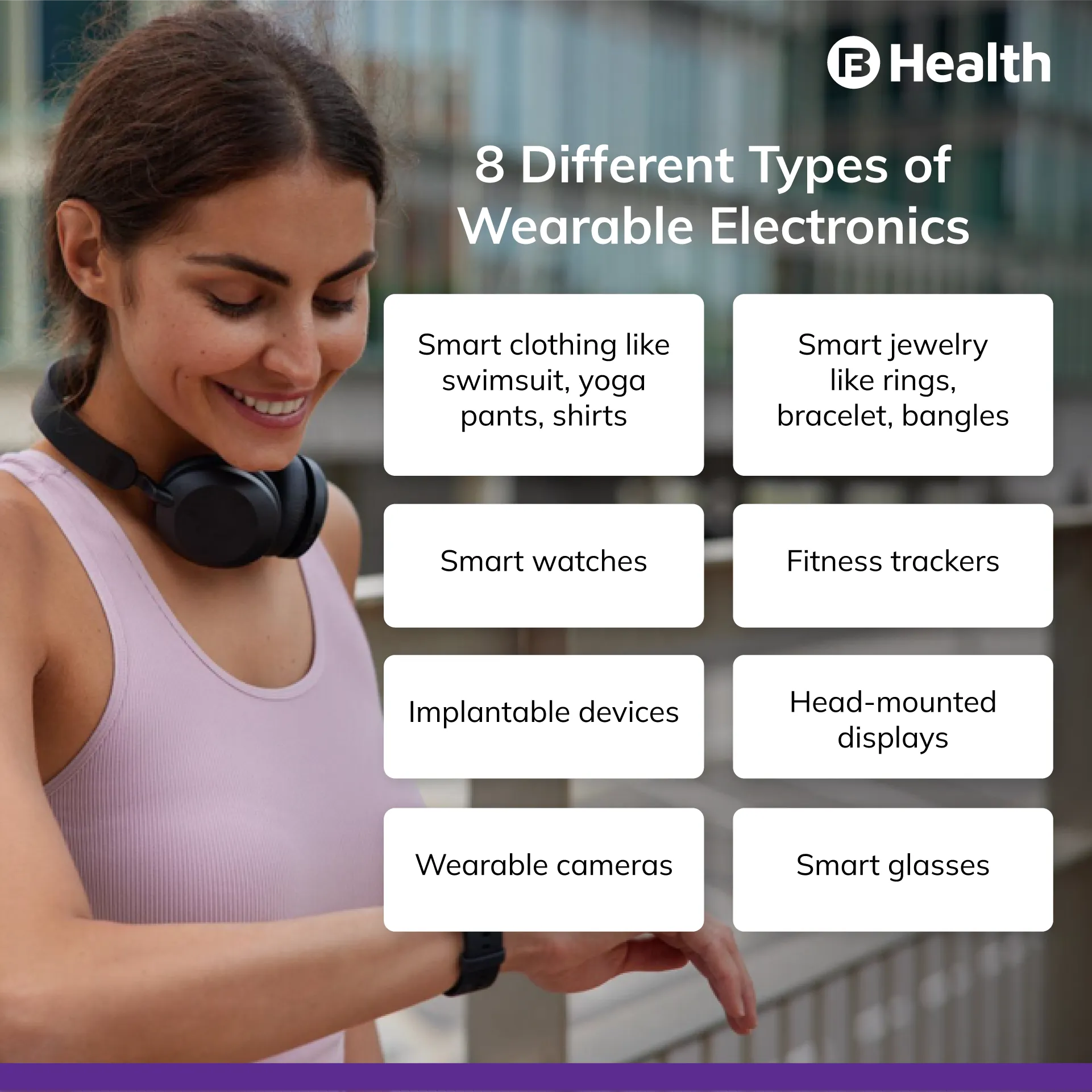General Health | 4 min read
Do Wearables Improve Health: 4 Benefits That You Should Know!
Medically reviewed by
Table of Content
Key Takeaways
- Wearable electronics work with the help of sensors that sync your data
- Improved fitness and productivity are some benefits of wearable technology
- Inaccurate data can be a disadvantage of wearable technology in healthcare
Wearable technology has been gaining popularity since the past decade. They are also known as personal health monitoring devices as they allow you to track your health. Setting quantifiable goals for yourself is an important use of wearable technology in healthcare. With it you can monitor your insulin levels, blood pressure, heart rate and more.
Read on to find out how does wearable technology work and the benefits of wearable technology.
How does wearable technology work?
Before understanding how does it work, it important to understand, what are wearables? Technology has made it possible today to track your health parameters on the go by putting in devices or clothing that are comfortable to use. Wearable electronics work because of the motion sensors present in them. These sensors can track and sync your day-to-day activity with your mobile or laptop.
Here are some common wearable devices’ examples.
- Smart watches
- Smart jewelry
- Smart clothes
- Smart fitness trackers

Wearable devices in healthcare help you to determine
- Blood pressure
- Heart rate
- Oxygen level
Many smart watches now have features that can help you track this data and more.
Additional Read: High Blood Pressure Vs Low Blood PressureWhat are the benefits of wearable technology?
There are many benefits of wearable technology in healthcare as well as in business. Take a look at how wearable technology helps you in different ways.
Improves your fitness
One of the advantages of health monitory system or devices is that they can give real time information on your health. This leads to you have a quantifying set of goals that you can achieve for betterment. Do wearables improve health and fitness? Yes, they do by giving you information on to what to work on. Apart from this, some wearable can also warn about possible injuries.

Helps save lives
Some wearable devices like wristbands and clothes can track vital health signs. They can inform doctors when you need immediate medical care, and play vital roles to save your life.
Calms your mind
Relaxing is important to stay healthy. Some devices can track your sleep schedule or help you meditate. You become more aware about the effects of sleep deficiency when you can track your sleep. Practices like relaxation and meditation help calm your mind, and improve brain function [1] and sleep.
Productivity
Improved productivity is one of the best benefits of wearable technology in business. This productivity happens in terms of physical activity as well as the work done. With the help of wearable electronics, you can track how long you have been sedentary. You can also set your goals and ensure that you meet them.
What are the disadvantages of wearable technology?
Apart from the benefits, you should also know the cons of wearables electronics. Some disadvantages of wearable technology in healthcare are

Short battery life
Though there are wearables who can last for days without charging batteries, most only last for a day. This short battery life makes it difficult to keep track of things and your health.
Inaccurate data
Though it is rare, some wearable can give inaccurate results or reading. This inaccuracy becomes a cause of concern because of its implication. Measures taken from an inaccurate data can lead to complicated health issues.
Possibility of security breach
Wearables are digital, and with it also comes the risk of security breach. According to a report 82% of the people worried about privacy invasion by wearables. 86% of the people had concerns about increased vulnerability to security breach [2].
Additional Read: Meditation: Benefits, Types and StepsWith the above benefits, the future of wearable technology in healthcare seems vast and ever-growing. To make efficient use, keep in mind the pros and cons of wearable technology in healthcare and in general. Wearable electronics may help you be aware about your health, and alert you in case of any signs of illness. In such cases, make sure you contact a doctor immediately. Book an in-clinic or online consultation with top practitioners on Bajaj Finserv Health. You can also take proactive measures and go for regular health check-ups to stay on top of your health. Select from a range of pocket-friendly test packages available on the platform to keep yourself healthy. Take smart decisions with your smart devices!
References
- https://www.mayoclinic.org/tests-procedures/meditation/in-depth/meditation/art-20045858
- https://www.pwc.se/sv/pdf-reports/consumer-intelligence-series-the-wearable-future.pdf
Disclaimer
Please note that this article is solely meant for informational purposes and Bajaj Finserv Health Limited (“BFHL”) does not shoulder any responsibility of the views/advice/information expressed/given by the writer/reviewer/originator. This article should not be considered as a substitute for any medical advice, diagnosis or treatment. Always consult with your trusted physician/qualified healthcare professional to evaluate your medical condition. The above article has been reviewed by a qualified doctor and BFHL is not responsible for any damages for any information or services provided by any third party.





